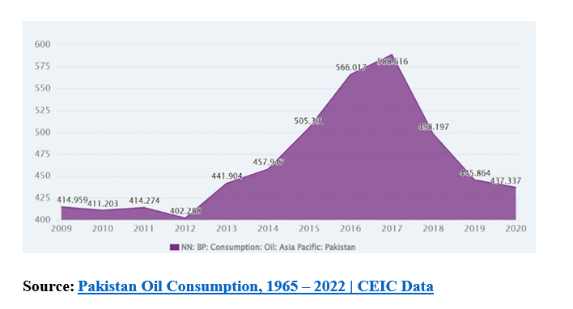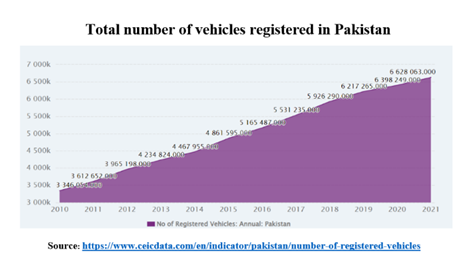INP-WealthPk
Farzana Rubab
Electric vehicles (EVs) are considered to have played a significant role in reducing CO2 emissions and oil demand. According to the Net Zero Emissions Scenario (NZE) of the International Energy Agency (IEA), reducing fossil fuel consumption by 75 percent by 2050 will be necessary to meet the net-zero goals.
Talking to WealthPK, Policy Manager at the Engineering Development Board of Pakistan (EDB) Engr. Asim Ayaz said, “The Engineering Development Board has granted licenses to 12 companies out of 21 enterprises to manufacture and assemble electric vehicles in Pakistan.”
“The current adoption rate of EV policy is 2.2% for two and three-wheelers and 0% for four-wheeler vehicles. However, license is being granted to a company – DICE and MG Motors – to explore the market in four-wheeler modifications,” he said.
Furthermore, Asim said, “The main reason behind the low adoption rate is that companies do not have proper knowledge related to policies and procedures. For example, the participating companies are not fully prepared to fulfill the requirements of charging stations [installation] and their successful working.”
There are several incentives given, which are specified in the EV policy document, to increase EV manufacturing. Moreover, licenses are also given to some companies which are going to work on hybrid-based models.
Talking to WealthPK, Director Center for Business and Economic Research at the Institute of Business Administration (IBA) Dr. Junaid Alam Memon said, “National Electric Vehicle Policy is achievable because EVs are much simpler. They are easier to produce, have fewer parts, and require fewer personnel on the assembly line lowering labor expenses. EVs are simpler to maintain and are less expensive for buyers.


The majority of the world's oil is consumed in transportation. In order to intensely reduce oil usage to achieve climate targets, the transportation industry should be decarbonized. As a result, the auto industry must convert from using fossil fuels to sustainable energy sources. Electric vehicles, which use clean electricity, are the best method to achieve this goal.
Pakistan implemented an ambitious National Electric Vehicles Policy (NEVP) in November with goals and incentives targeted at capturing 30% of all passenger vehicle and heavy-duty truck sales by 2030 and 90% by 2040. It sets even more challenging objectives, requiring 50% of new sales for two- and three-wheelers by 2030 and 90% by 2040.
In Pakistan, where there are 32 million households and 17.5 million motorcycles on the road, motorcycle ownership rose from 41% in 2015 to 53% in 2018. Pakistan ranks after China, India, Indonesia, and Vietnam as the fifth-largest motorcycle market in the world.
The EV industry has the potential to significantly boost the economy by conserving hard-earned foreign cash, creating thousands of new jobs, and encouraging the growth of related industries. The electric vehicles can also significantly reduce health costs associated with air and voice pollution in urban areas. However, a strong grid and consistent policy support are required for this change to occur.
Credit : Independent News Pakistan-WealthPk



